|
A Michigan Court of Appeals panel said a public health law that gave Michigan's health director the authority to close restaurants to control the spread of COVID-19 is unconstitutional, ruling in a split decision that the epidemic-control statute gave state health officials too much power with too few guardrails. The 1978 statute, which gives the public health director power to control gatherings and issue rules to stop the spread of disease in the event of an epidemic, violates the non-delegation doctrine by granting legislative powers to the agency, the majority found. "We find that the power delegated by the legislature to the executive in MCL 333.2253 is extremely broad and is essentially unlimited by restrictive standards," Judge Michael F. Gadola wrote for the majority in an opinion dated Thursday but released Friday. The majority found a catering company and banquet hall, T&V Associates Inc., should have prevailed on its claim that the provision was unconstitutional, reversing a ruling of the Michigan Court of Claims. The catering company said its business was devastated by the restrictions on indoor dining issued by the health department during the pandemic. Those restrictions included, at various times, bans on indoor food service, capacity limits dictating how full restaurants could be and restrictions on how late bars could remain open. In a dissent, Judge Christopher P. Yates lamented that "the COVID-19 wars have raged on" in the courts despite the pandemic itself easing, finding that the issue was moot because the orders the catering company objected to have long since been rescinded. "We judges have the power and, in my view, the duty under the mootness doctrine to dismiss the combatants from the COVID wars and bring down the curtain on this chapter in our history," Judge Yates said. Judges Mark T. Boonstra, Michael F. Gadola and Christopher P. Yates sat on the panel for the Michigan Court of Appeals. T&V Associates Inc. is represented by Albert B. Addis, Paul B. Addis and Justin M. Majewski of Michigan Justice PLLC. Michigan Director of Health and Human Services Elizabeth Hertel is represented by Darrin F. Fowler, Kyla Barranco and Andrea L. Moua of the Michigan Attorney General's Office. The case is T&V Associates Inc. v. Director of Health and Human Services, case number 361727, in the Michigan Court of Appeals.
0 Comments
Powell and the other attorneys were among those sanctioned in a blistering order issued by U.S. District Judge Linda V. Parker. The Sixth Circuit on Friday mostly left in place a Michigan federal judge's sanctions against former Trump campaign lawyer Sidney Powell and a handful of other attorneys involved in a lawsuit challenging the 2020 presidential election results, although it found that some claims were reasonable and therefore not sanctionable. The three-judge panel affirmed in part and reversed in part the August 2021 sanctions ruling. Notably, the panel said that a "reasonable pre-filing investigation would have shown counsel that their allegations about [Dominion Voting Systems] were baseless." Thus, those allegations were indeed sanctionable, according to the decision. And their allegations of various lesser violations of Michigan election law were "baseless," the Sixth Circuit said. "The problem with those allegations, simply stated, is that counsel apparently did not read the statute they said was violated," the panel said. At the same time, the Sixth Circuit said the lawyers' complaint did include credible allegations, including that election workers at one voting center "mistreated, intimidated and discriminated against Republican election challengers." "Indeed some three dozen detailed affidavits supported the complaint's allegations to that effect," the panel said. And that intimidation and harassment was potentially criminal, according to the decision. "The district court should not have dismissed these affiants' allegations out of hand," the Sixth Circuit said. Ultimately, the Sixth Circuit said the district court "found the entirety of the plaintiffs' complaint sanctionable." However, "we find only part of the complaint sanctionable, and thus reverse in part and affirm in part." It also slightly trimmed awards to the state of Michigan and city of Detroit, subtracting $8,450 in fees from the city's award and decreasing the state's award from roughly $22,000 to about $19,600. Powell and the other attorneys were among those sanctioned in a blistering order issued by U.S. District Judge Linda V. Parker. According to the judge, Powell and her fellow lawyers attempted to deceive the court through unfounded claims with no supporting evidence, a "historic and profound abuse of judicial process." Judge Parker, who was appointed by former President Barack Obama, ordered the attorneys to take at least six hours of continuing legal education courses on pleading standards and at least six more hours on election law. She also issued a $175,000 monetary penalty and referred her sanctions order to the Michigan Attorney Grievance Commission and other disciplinary authorities for investigations into possible disbarment or suspension. L. Lin Wood, Emily Newman and Stefanie Lynn Junttila then appealed individually, and Gregory Rohl, Brandon Johnson, Howard Kleinhendler, Sidney Powell, Julia Haller and Scott Hagerstrom lodged a joint appeal. In their appeals, the lawyers called the sanctions "career-ending" and argued that Judge Parker had violated their First Amendment rights to petition and discriminated against them based on their and their clients' political viewpoints. On Friday, the Sixth Circuit sided with the lawyers in part but mostly upheld the sanctions. It said that the complaint indeed stated two claims that weren't frivolous, but that it agreed with the district court that all the other claims were sanctionable. In particular, the panel said the lawyers pointed to several unreliable reports from "experts" — and also misrepresented another purported expert report — in claiming that Michigan's election results were statistically anomalous or impossible. At the same time, their reliance on several other experts was not sanctionable, it said. Still, the Sixth Circuit said the district court erred in finding that the attorneys filed their suit for "an improper purpose," in particular asserting that they were trying to use the judicial process to "frame a public narrative." "But another word for 'framing a public narrative' is speech; and Rule 11 cannot proscribe conduct protected by the First Amendment," the panel said. "True, an attorney may not say whatever she likes inside a courtroom. But an attorney's political speech outside a courtroom — including political speech about a lawsuit — is irrelevant to a Rule 11 inquiry about the suit itself." The Sixth Circuit continued, "To the contrary, parties and their attorneys are free to use litigation 'as a vehicle for effective political expression and association.'" Here, speech outside the courtroom is what the district court apparently found objectionable, the panel said. But when it comes down to it, that doesn't show that the lawyers were motivated by improper purposes, according to the decision. The panel also rejected Wood's argument that he didn't know his name was even on the suit, finding that Lin had publicly touted his involvement, including on social media. The lawyers involved in the appeal pursued a slew of unsubstantiated claims in the aftermath of President Joe Biden's defeat of former President Donald Trump in the 2020 election. Ultimately, their efforts in Michigan led the city of Detroit to ask that sanctions be imposed against them. Michigan Gov. Gretchen Whitmer, a Democrat, also filed complaints against Powell and three other attorneys with the Wolverine State's attorney grievance commission, arguing that they should be disbarred. Paul Stablein, an attorney for Wood, told Law360 on Friday that he and his client respect the Sixth Circuit's decision, but "disagree with the court's conclusion that Mr. Wood had anything to do with the drafting or filing of the complaint in Michigan." "The defendants did not present sufficient evidence to conclude that Mr. Wood actually participated in the preparation or investigation of the allegations set forth in the complaint filed shortly after the 2020 election," Stablein said. "Though he may have agreed with the other lawyers' efforts, he did not have any knowledge of the specifics of the complaint and the facts it contained or relied upon." The attorneys, Michigan and Detroit didn't immediately respond to requests for comment late Friday. Junttila couldn't be immediately reached for comment. U.S. Circuit Judges Danny Julian Boggs, Raymond M. Kethledge and Helene White sat on the panel for the Sixth Circuit. The attorneys are represented by Stefanie Lynn Junttila of Federal Criminal Attorneys of Michigan and Howard Kleinhendler, Sidney Powell, Paul J. Stablein and Timothy E. Galligan. Michigan is represented by Heather S. Meingast and Erik A. Grill of the Michigan Attorney General's Office. Detroit is represented by David H. Fink and Nathan J. Fink of Fink Bressack. The case is Timothy King et al. v. Gretchen Whitmer et al., case numbers 21-1785, 21-1786, 21-1787 and 22-1010, in the U.S. Court of Appeals for the Sixth Circuit. The U.S. Supreme Court ruled Friday that Texas and Louisiana lack standing to challenge President Joe Biden's attempt to prioritize national security threats and other targets for immigration arrests and deportations. In an 8-1 ruling, the justices declined to weigh in on whether the U.S. Immigration and Customs Enforcement guidance violated several provisions of the Immigration and Nationality Act, undoing Texas federal Judge Drew Tipton's vacatur of the guidance last June.Justice Brett Kavanaugh's majority opinion rejected the states' argument they had standing based on costs they said they would incur because the Biden administration was not following laws requiring immigration officials to arrest certain noncitizens. "The states cite no precedent, history, or tradition of federal courts entertaining lawsuits of this kind," Justice Kavanaugh wrote. Calling the states' lawsuit "extraordinarily unusual" for asking the judicial branch to order the executive branch to arrest more people, the majority reiterated its longstanding preclusion of entertaining such complaints, saying there is no concrete injury the court can redress. When the executive branch chooses not to arrest or prosecute certain people, it's not infringing on liberty rights that courts generally have the authority to protect, the decision said. Supreme Court precedent has generally held that plaintiffs lack standing when they have not been prosecuted or threatened with prosecution, "and the States have pointed to no case or historical practice holding otherwise," it said. The states' lawsuit also runs up against the executive branch's power to enforce federal laws, Justice Kavanaugh wrote. Accepting their standing argument "would entail expansive judicial direction" over the U.S. Department of Homeland Security's arrest policies, and such policy decisions are better left to Congress, it said. "If the court green-lighted this suit, we could anticipate complaints in future years about alleged executive branch under-enforcement of any similarly worded laws — whether they be drug laws, gun laws, obstruction of justice laws, or the like," the opinion said. "We decline to start the federal judiciary down that uncharted path." Chief Justice John Roberts and Justices Sonia Sotomayor, Elena Kagan and Ketanji Brown Jackson joined the majority opinion. Justice Neil Gorsuch wrote a concurring opinion that was joined by Justices Clarence Thomas and Amy Coney Barrett, and Justice Barrett wrote a separate concurrence joined by Justice Gorsuch. Justice Samuel Alito dissented, saying the majority "brushes aside" major precedent directly controlling the standing question, which he said has allowed standing for traditional injuries that stem from agency decisions not to take enforcement actions. Alito also suggested his colleagues disregarded findings of fact quantifying the costs the states incurred from criminally supervising noncitizens who should have been in DHS custody. The policy, which was issued in February 2021, revamped immigration enforcement guidance to prioritize the removal of individuals considered a threat to border security, national security and public safety. Judge Tipton, however, agreed with Texas and Louisiana that the policy flouted Section 1226(c) and Section 1231(a) of the INA, which state the U.S. attorney general "shall" arrest noncitizens with aggravated felony convictions or final orders of removal. A month later, the Fifth Circuit let the ruling stand. During oral arguments at the high court in November, Solicitor General Elizabeth Prelogar incensed several of the justices with her argument that courts cannot vacate federal agency actions, and have been overreading Section 706 of the Administrative Procedure Act to impose nationwide injunctions blocking federal policy. Justice Roberts called it a "fairly radical" proposition. In his concurrence, Justice Gorsuch addressed the argument, calling it "serious enough to warrant careful consideration." He suggested nationwide injunctions and vacatur — forms of universal relief — put separation of powers at risk. "It exaggerates the role of the judiciary in our constitutional order, allowing individual judges to act more like a legislature by decreeing the rights and duties of people nationwide," he wrote. The policy at issue was the Biden administration's third attempt to identify which noncitizens to prioritize for arrest and deportation, after two previous two schemes were tied up in court. The administration has argued that there are more than 11 million unauthorized immigrants in the U.S. and DHS does not have the resources to remove all of them. Justice Kavanaugh gave a nod to that argument in the majority opinion, saying "that reality is not an anomaly" and has been a constant for 27 years over five administrations that "determined that resource constraints necessitated prioritization in making immigration arrests." The White House, the U.S. Justice Department and Texas did not immediately respond to requests for comment. A spokesperson for Louisiana Attorney General said in a statement to Law360 that the justices "specifically did not endorse" the Biden administration policy, suggesting that "Congress should pass legislation allowing states to hold federal government officials accountable." "The court noted that Congress could not only authorize lawsuits against the executive branch by a specified group of plaintiffs that have suffered harm, but also authorize judicial remedies," the statement said. Homeland Security Secretary Alejandro Mayorkas, meanwhile, welcomed the ruling, saying the agency "looks forward" to reinstating the guidance. "The Guidelines enable DHS to most effectively accomplish its law enforcement mission with the authorities and resources provided by Congress," Mayorkas said. Friday's decision was widely welcomed by immigrant rights advocates. American Immigration Lawyers Association President Farshad Owji said in a statement the decision "sends a clear message." "It was always a bad idea to try and use the courts as a political weapon. Justice wins out today, and this decision means the government will be able to prioritize its limited resources to ensure public safety in a smart and rational manner," Owji said. Kate Melloy Goettel, the American Immigration Council's legal director, said in a statement that "courts should not be in the business of directing law enforcement's decision-making. The decision "should give pause to states contemplating using the courts to drive a political strategy," she said. Law360 is tracking the latest on immigration policies and related developments, including the ICE enforcement guidance. The government is represented by Elizabeth B. Prelogar of the U.S. Department of Justice. Louisiana is represented by Elizabeth B. Murrill and Joseph S. St. John of the Louisiana Department of Justice. Texas is represented by Judd E. Stone, Lanora C. Pettit and Benjamin D. Wilson of the Office of the Texas Attorney General. The case is U.S. et al. v. Texas et al., case number 22-58, in the Supreme Court of the United States. When Kansas lawmakers enacted legislation that made it a crime for out-of-state groups to send mail-in ballot applications to voters, attorneys with Simpson Thacher & Bartlett LLP sprang into action and recently notched a major First Amendment victory in challenging the law.
The firm represented the nonprofit voter engagement groups VoteAmerica and the Voter Participation Center, which are both based outside Kansas, in convincing a federal judge last month to strike down a 2021 law that they said had unconstitutionally barred them from engaging in voter recruitment efforts in the state. Kansas legislators passed the law, known as House Bill 2332, in 2021 over the veto of Democratic Gov. Laura Kelly. The measure was part of a wave of voting restrictions enacted by states across the country in the aftermath of the 2020 presidential election, many of which have gone on to face legal challenges. While almost all of the other suits centered on alleged violations of the Voting Rights Act of 1965, the plaintiffs in the Kansas case went a different way: they invoked the First Amendment, arguing that the law prohibited their political speech, and encroached on interstate commerce in violation of the commerce clause in the U.S. Constitution. The strategy paid off. In early May, a federal judge permanently blocked the enforcement of the provisions in H.B. 2332 that criminalized personalized advance mail-in ballot applications, agreeing that they were "an unconstitutional infringement on [the groups'] First Amendment rights to speech and association" and were "unconstitutionally overbroad." The Kansas officials named as defendants in the suit — Secretary of State Scott Schwab, Attorney General Kris Kobach and Johnson County District Attorney Stephen M. Howe — filed a notice of appeal on June 1, and the case will now go before the Tenth Circuit. When his team of lawyers dove into the case, Jonathan K. Youngwood, the global co-chair of Simpson Thacher's litigation department, said he was fascinated by the legal issues at its core. "It's a case that relates to voting and access to voting, but at its heart it's a First Amendment case," Youngwood told Law360 in a recent interview. "We thought it was important to take on a case like this."Voting by mail was highly popular during the 2020 elections in Kansas, which saw a record turnout of nearly 71%. Because of the challenges and health risks presented by the COVID-19 pandemic, more Kansans used mail ballots to cast their votes than ever before. It's a trend that VoteAmerica and the Voter Participation Center say they would like to see continue, and they've made it their mission to make voting by mail a staple of the post-pandemic era. Seeking an injunction to stop the legislation from going into effect, Youngwood and more than a half dozen Simpson Thacher lawyers invested more than 2,000 pro bono hours on the litigation, partnering with the Campaign Legal Center and lawyers with Latham & Watkins LLP and Dentons. In a complaint filed in June 2021, the attorneys challenged the law on two fronts. First, they zeroed in on what they described as the law's "out-of-state distributor ban," which they alleged was discriminatory against interstate commerce because it explicitly forbade non-Kansas residents to mail advance ballot applications to voters, while allowing state residents to engage in the same conduct. The law set up a civil penalty — $20 for each instance someone mails an advance ballot application — that would have resulted in millions of dollars in fines for VoteAmerica and Voter Participation Center, which send mailers to hundreds of thousands of Kansans during each election cycle, the complaint said. The groups argued that the provision, which directly targeted their operations model, placed "a severe burden" on their rights to free speech and would have a chilling effect in the future. In their second line of attack on H.B. 2332, the organizations argued that a separate provision in the law that prohibited mailing advance mail-in ballot applications that had been pre-completed with a voter's personal information — even where voters had provided that information themselves — undermined their speech and their ability to engage with voters. The state, meanwhile, argued that the personalized application prohibition was necessary to minimize voter confusion, avoid inefficiencies, and reduce potential voter fraud — despite Kansas officials saying publicly that there were no such issues with fraud during the 2020 election. The state also invoked its constitutional authority to regulate elections, saying the law didn't violate the First Amendment. During an evidentiary hearing in September 2021, VoteAmerica Vice President Daniel McCarthy said that the organization, which is incorporated in California and operates remotely, targets voters with traditionally lower turnout rates, who tend to have lower incomes and less access to comprehensive and credible news coverage. "We believe in an expanded electorate where everybody has their right to their vote, and therefore, we have a more representative government," McCarthy said, according to a transcript of the hearing. Voter Participation Center CEO Thomas Keith Lopach testified that his organization aims to boost turnout among people of color, unmarried women and young voters. "We seek to help them engage in democracy," he said.During cross-examination, an attorney for the defendants, Scott R. Schillings of Hinkle Law Firm LLC, asked Lopac about a press release in which the Voter Participation Center called H.B. 2332 "dangerous" because it made it more difficult for people to vote. Schillings noted, however, that Kansans were still able to vote by mail, regardless of the restrictions prescribed by the law. "H.B. 2332 does not interfere with any Kansans' ability to vote by mail, does it?" Shillings asked. "I would disagree," Lopach replied. On the stand for the defense, elections officials for the state of Kansas testified that, during the 2020 election, their offices were overwhelmed by mail-in ballot applications that appeared duplicative. Verifying those applications diverted resources that were to be used to ensure elections ran smoothly, they said. "It's been a stressful scene, and it's been difficult," Andrew Howell, the election commissioner of Shawnee County, Kansas, told the court. Attorneys for the defendants argued that pre-filled mail ballot applications from the Voter Participation Center and VoteAmerica were part of the problem. Two months after that hearing, U.S. District Judge Kathryn H. Vratil ended up siding with the plaintiffs. She issued a preliminary injunction in November 2021 blocking the law from taking effect, while denying the state's motion to toss the suit. "Plaintiffs sufficiently allege that the out-of-state distributor ban is per se illegal," she wrote in the order, saying the nonprofits had shown that they were likely to succeed on the merits. Judge Vratil noted that Kansas' administrative procedures to avoid voter fraud, which had proven successful in the past, undermined the state's rationale for the law. After the ruling, Kansas stopped challenging the plaintiffs' allegations on the out-of-state distributor ban — and, as a result, can no longer seek to defend them on appeal before the Tenth Circuit — but dug its heels in on the personalized mail-in ballot application issue. A lengthy discovery process followed, and a bench trial in the case was expected to start some time in the spring. Acting on summary judgment motions filed in the case, however, Judge Vratil issued a new sweeping order on May 4 that permanently blocked Kansas from moving ahead with the personalized mail-in ballot application ban, saying state officials did not prove that it would achieve its purported goals. She added that the ban infringed on the nonprofits' right to free speech and association. "By proscribing all advance mail ballot application personalization, the personalized application prohibition criminalizes a substantial amount of protected speech and association," the judge wrote in her order. "Facially, the personalized application prohibition is unconstitutionally overbroad." In processing the case, Judge Vratil applied a form of heightened scrutiny to the allegations because, she said, the plaintiffs had successfully established that their First Amendment rights were threatened by the law. Youngwood said his clients' case was strong because it hinged on political speech, an area where American law guarantees significant protections. Plaintiffs in more typical litigation dealing with voting access, such as how long a polling place is open or how many ballot boxes are placed in a certain neighborhood, usually face longer odds, he said. "We think that's part of what makes the case so strong," he said. "It would certainly be our hope that this district court decision will be helpful in fighting off any similar laws that somebody passes." Counsel for the Kansas officials did not return requests for comment. The plaintiffs are represented by Jonathan K. Youngwood, Meredith D. Karp, Bonnie Jarrett, and Nicole A. Palmadesso of Simpson Thacher & Bartlett LLP, Alice Huling, Allison Walter, Aseem Mulji, Danielle M. Lang, Hayden Johnson, and Christopher Lapinig of Campaign Legal Center, and Mark P. Johnson of Dentons. The defendants are represented by Bradley Joseph Schlozman and Scott R. Schillings of Hinkle Law Firm LLC. The case is VoteAmerica v. Schwab et al., case number 2:21-cv-02253, in the U.S. District Court for the District of Kansas. In 1972, a University of Massachusetts Amherst student, Ed Meek, was leaving a college dorm party.[1] As he began his walk home, Amherst police, who had been tipped off about the party, arrested Meek for public intoxication. At the station, the officers discovered a joint in his wallet.
As he recounts in a WBUR essay, Meek and his lawyer persuaded the judge to postpone the trial indefinitely. Little did he know, this would not be the last time he heard about this joint. Nearly 20 years later, he and his wife applied to adopt a baby from Guatemala. However, the Guatemalan government denied their request due to Meek's record of cannabis possession. Although carrying that same amount of cannabis is now legal in Massachusetts, the stain remains on Meek's record. From applying to jobs to volunteering, this charge has and will continue to follow him for the rest of his life. This story is not unique. As both a former public defender and prosecutor, I have seen firsthand how individuals face obstacles to housing, employment and other fundamental opportunities due to nonviolent cannabis law violations. This reality is true for millions of Americans: Studies show that all 50 states have statutes that impose barriers on individuals convicted of crimes, and over 80% of these statutes effectively function as a denial of employment opportunities.[2] A key pathway to address this issue is through expunging low-level cannabis-related convictions. The process of expungement involves petitioning one's local officials, so that individuals can have their record cleared of these convictions. If they are lucky enough to get through, the process can take a lot of time just to have the conviction actually taken off of their record. Previous legislation on cannabis expungement has targeted federal convictions. However, the focus should be on state and local expungements, as state and local law enforcement handle the vast majority of cannabis-related charges. In 2021, state and local law enforcement reported almost 171,000 arrests for marijuana possession, and close to 14,000 arrests for selling marijuana.[3] By contrast, just under 1,000 people were charged with marijuana crimes on the federal level that same year.[4] The problem isn't that states and cities don't want to accelerate expungement programs for cannabis offenses, but rather that their outdated systems can't support these efforts. Some still heavily rely on paper records in local courthouses. In such cases, the process of expungement requires the clerk to manually find the physical record in their filings. In the 21st century, state and local governments should have access to digitized records. This poses the question: What can be done to remedy this issue? That's where the Harnessing Opportunities by Pursuing Expungement Act comes in. In April, I introduced the HOPE Act with Rep. Alexandria Ocasio-Cortez, D-N.Y. This bipartisan legislation would help address these complications by creating a new grant program under the U.S. Department of Justice called the State Expungement Opportunity Grant Program. The grant program provides funding to state and local governments to alleviate the financial and administrative challenges of clearing state convictions related to cannabis. This relief will benefit individuals who are already eligible for expungement under state laws. One of the primary barriers to expungements on the state and local level is the extensive, time-consuming process. While every jurisdiction has different mandates, the applicants are bound to face hurdles. For starters, simply acquiring all the documents needed to file the application is daunting. Not to mention the fact that some jurisdictions need an approval of the expungement from the prosecutor's office before the court can even consider the expungement, tacking on additional time. Once the applicant has obtained all necessary documents, some jurisdictions require them to prepare the legal document, while others require the applicant to serve papers to the district attorney. If and when applicants officially receive the expungement order, which could take months or even years, they may also be required to serve the order to different agencies that have the record of arrest. As we have seen time and time again, technology is the key to efficiency. With this in mind, state and local governments could also use grant funding under the act to provide legal relief on a broader scale, to make cannabis conviction-related expungements automatic, to publicize information about the process of expungement, and more. Funding for technological solutions would address outdated systems, including those that rely on physical records to complete the expungement. Not only do expungements take time, they also aren't cheap. Though fees vary widely across states, they generally cost a few hundred dollars, which may be difficult to afford for people with convictions who are struggling to find work.[5] With a total of $20 million in grants over the course of 10 years, the HOPE Act will help eliminate the financial burdens of the expungement process while also respecting a state's right to choose if they want to provide such relief. Grants will be administered based on the level of need. Whether it be for legal clinics or to automate the process, each jurisdiction can choose what is best suited for their existing laws. In turn, states and localities will be able to effectively and efficiently expunge convictions for cannabis offenses on the state level. Millions of Americans suffer the consequences of cannabis-related arrest records,[6] even though nearly half the U.S. population lives in a state with legal access to cannabis.[7] Both progressive in scope and conservative in approach, the HOPE Act redresses the consequences of outdated policies. From my perspective as a former public defender and prosecutor, this bill is needed to bring justice system policies in line with the realities of cannabis reform. Enbridge Energy Co. must remove an oil and natural gas pipeline from Wisconsin tribal land, a federal judge has ruled, giving the company three years to reroute its controversial Line 5 and ordering it to pay $5.2 million for trespassing. The decision, which Judge William M. Conley of the Western District of Wisconsin issued Friday, marks a possible end to litigation in which the Bad River Band of Lake Superior Chippewa accused Enbridge of illegally keeping Line 5 on the tribe's reservation after multiple easements had expired. After siding with the tribe last September on its trespassing claim, Judge Conley took nine months to calculate damages and weigh the Bad River Band's request for a pipeline shutdown. In his order Friday, the judge identified a "real and unreasonable risk" that Line 5 could rupture in the not-too-distant future — a possibility that tribal authorities say warrants closing the pipeline. But he declined to immediately shutter the Enbridge structure, instead directing the energy company to strengthen its risk-assessment efforts and to move Line 5 off the Bad River Band's reservation within three years. "In this way," Judge Conley wrote, "at least Enbridge might continue operations of the pipeline during the more stable months of the year, allowing a sufficient period of time for markets to adjust without shortages or extreme price swings … and Line 5 to be successfully decommissioned on the Reservation with fewer significant market disruptions." Mike Wiggins, chairman of the Bad River Band, hailed Friday's ruling as a victory for tribal sovereignty. Still, he said in a statement, the ruling "is not a cause for unqualified celebration." "We are under no illusion that Enbridge will do the right thing," Wiggins said. "We expect them to fight this order with all of their corporate might. This is just one step in protecting our people and water." Enbridge plans to appeal Judge Conley's order and might seek a stay in the meantime, according to company spokesperson Juli Kellner. The energy supplier maintains it received permission from the Bad River Band in the early 1990s to keep company infrastructure on the tribe's northern Wisconsin reservation until at least 2043. Still, the Canadian company has developed a plan to reroute Line 5 around the reservation — a project that Kellner said Tuesday will be completed in less than a year once permitting is approved. Judge Conley cast an impatient tone Friday in discussing those plans. The reroute project will probably take at least five more years, he said, adding that the timeline could be even longer "absent extraordinary efforts" from Enbridge and intervention by the federal government. The company has already had a decade to move Line 5, which traverses the Upper Midwest, after learning in 2013 that its easements on the Bad River Band reservation had expired, the judge noted. "Considering all the evidence, the court cannot countenance an indefinite delay or even justify what would amount to a five-year forced easement with little realistic prospect of a reroute proceeding even then," he said in ordering the pipeline's removal within three years. Until then, Judge Conley instructed Enbridge to keep a close eye on environmental conditions around Line 5 in order to keep it from rupturing. The company must monitor daily precipitation forecasts from the National Oceanic and Atmospheric Administration and the National Weather Service, he said. The judge also tightened a pipeline-shutdown procedure Enbridge instituted in December. Under the heightened standard, Enbridge must temporarily shut Line 5 if water flows in the Bad River exceed 10,500 cubic feet per second. The rules were a concession to tribal authorities, who warned in May that soil erosion at the river had accelerated sharply and risked exposing, and possibly rupturing, the pipeline. Those conditions are serious enough to justify court intervention, Judge Conley said Friday. Still, he declined to order an immediate shutdown, noting that the Bad River Band has refused to engage with Enbridge on various mitigation proposals. A stronger monitoring and shutdown plan "would significantly reduce the threat of an imminent oil or NGL spill in the near term," the judge said, referring to natural gas liquids. Judge Conley also ordered Enbridge to pay the Bad River Band nearly $5.2 million to remedy its trespassing violations. Most of that sum represents profits from Line 5, with the remainder coming from costs that Enbridge saved by delaying its pipeline-reroute project. Under the terms of Friday's ruling, the company must continue to compensate the tribe until it abandons the northern Wisconsin reservation. Erick Arnold, a lawyer for the Bad River Band, said the tribe is "heartened" that Enbridge will be forced to reroute Line 5. But a three-year timeline "leaves the Bad River vulnerable to catastrophe," Arnold added. "And while the Band's motivations have never been about money," he said in a statement, "such a small award for a decade-long trespass during which Enbridge earned over a billion dollars in net profits from Line 5 will not sufficiently deter trespassers … but will instead create an incentive for corporations to violate the sovereignty of the Band." Bad River Band leaders sued Enbridge in 2019 over allegations that the company has trespassed on their reservation — located on the shores of Lake Huron — by not moving Line 5 after the expiration of its easements six years earlier. Judge Conley largely sided with the tribe last September, finding a trespass on 12 parcels within the reservation, but declined to shut the pipeline due to the "significant public and foreign policy implications" of such a move. Two months later, after a bench trial, he ordered Enbridge and the Bad River Band to develop plans to keep Line 5 from rupturing. The 645-mile pipeline, which was built in 1953, carries crude oil and natural gas from Wisconsin to Ontario and provides Michigan with more than half of its propane needs, according to the company. Throughout the litigation, Enbridge and its allies in the energy industry — including the American Petroleum Institute and the American Fuel & Petrochemical Manufacturers — have warned against shuttering Line 5 based on economic concerns. Such a move, they have said, would devastate local communities in Canada and the United States. Judge Conley acknowledged those concerns on Friday as a reason to delay rerouting the pipeline. Immediately closing Line 5 would create supply problems and cause energy prices in the region to spike, he said, adding that markets for oil and natural gas would take at least a year to stabilize. Indeed, the Bad River Band's trespassing suit "has always been about a tail wagging a much larger dog," the judge said Friday. Despite their legitimacy, he said, the allegations are "ill-suited to resolve what are much larger public policy issues as to the appropriate life of oil and gas pipelines that involve not only the sovereign rights of the Band, but the rights of multiple states and international relations between the United States and Canada." The Bad River Band is represented in-house by Erick Arnold and by Riyaz A. Kanji, David A. Giampetroni, Lucy W. Braun, Christopher Miller, Joshua C. Handelsman, Joohwan Kim, Jane G. Steadman, Philip H. Tinker and Claire R. Newman of Kanji & Katzen PLLC, Bruce Wallace of Hooper Hathaway Price Beuche & Wallace, Oday Salim of the National Wildlife Federation and Douglas M. Poland and David P. Hollander of Stafford Rosenbaum LLP. Enbridge is represented by Michael C. Davis, David L. Feinberg and Justin B. Nemeroff of Venable LLP, Eric M. McLeod and Joseph S. Diedrich of Husch Blackwell and David H. Coburn, Alice E. Loughran and Joshua Runyan of Steptoe & Johnson LLP. The case is Bad River Band of the Lake Superior Tribe of Chippewa Indians of the Bad River Reservation v. Enbridge Energy Company, Inc. et al., case number 3:19-cv-00602, in the U.S. District Court for the Western District of Wisconsin. A top attorney for the Oath Keepers, who allegedly helped plan the Jan. 6, 2021, siege on the U.S. Capitol, before destroying evidence relevant to the criminal investigation into the riot, is not mentally competent to stand trial next month, according to a D.C. federal judge's order Tuesday. U.S. District Judge Amit Mehta, in an order that followed a hearing Friday, postponed Kellye SoRelle's case, noting that both parties' medical experts concluded that she is mentally incompetent to stand trial, and ordered that she be hospitalized for mental health treatment. "The court finds by a preponderance of the evidence that [SoRelle] is presently suffering from a mental disease or defect rendering her mentally incompetent, to the extent that she is unable to understand the nature and consequences of the proceedings against her or to assist properly in her defense," Judge Mehta said. But the judge did conclude that "there is a substantial probability that in the foreseeable future she will attain the capacity to permit the proceedings to go forward," according to the order. SoRelle was arrested in Junction, Texas, in September, after a D.C. federal grand jury returned a brief indictment accusing her of conspiring to plan the Jan. 6 riot as early as December 2020, interrupting the certification of the Electoral College vote and advising others on Jan. 7 to "withhold records, documents and other objects" and "alter, destroy, mutilate, and conceal objects with the intent to impair" the grand jury investigation into the Capitol attack. SoRelle served as general counsel for the Oath Keepers, a far-right extremist group accused of being one of the architects of the Capitol riot. Many of the group's members have been charged and convicted in D.C. federal court on allegations that they led a mob of then-President Donald Trump's supporters into the halls of Congress in an attempt to halt the Electoral College tally that would formally name Joe Biden the next president. The group's founder, Elmer Stewart Rhodes, was sentenced in May to 18 years in federal prison after being convicted in November on a rarely used seditious conspiracy charge and two counts of obstruction of an official proceeding related to his role in the Capitol insurrection. Prosecutors said Rhodes, a graduate of Yale Law School and a former U.S. Army paratrooper, conspired with regional Oath Keeper leaders to attempt to block the peaceful transfer of power by traveling to Washington, D.C., and taking up arms at his direction. SoRelle, who has been in a romantic relationship with Rhodes, was charged with four counts: conspiracy to obstruct an official proceeding, obstruction of an official proceeding, entering and remaining in a restricted building or grounds and obstruction of justice. The charges collectively, if stacked, would amount to a maximum sentence of 61 years. SoRelle, who has her own law office in Granbury, Texas, is affiliated with Lawyers for Trump, a group formed in July 2020 to provide legal support to Trump's campaign and worked on unsuccessful legal challenges to the 2020 presidential election results. SoRelle's case was joined with two other defendants — U.S. Marine Corps veteran Donovan Crowl and Broadway actor James Beeks, also known as James Justis — for a trial set to begin July 10, according to court records. Crowl and Beeks are accused of participating in the planning of the attack on the Capitol, as well as participating in the riot, according to the eighth superseding indictment filed June 2022. Prosecutors said Crowl and Beeks were among the Oath Keepers members who marched up the east steps of the Capitol outside of the rotunda doors, joining a mob of people who attacked the Capitol Police officers guarding the entrance. Crowl and Beeks are charged with conspiracy to obstruct an official proceeding; obstruction of an official proceeding and aiding and abetting; conspiracy to prevent an officer from discharging any duties; destruction of government property and aiding and abetting; entering a restricted building or grounds and civil disorder and aiding and abetting, the indictment states. The trial is still set to move forward for Crowl and Beeks, court records show. A representative for the government declined to comment Tuesday. Counsel for SoRelle did not immediately respond to a request for comment. The government is represented by Kathryn L. Rakoczy, Troy A. Edwards Jr., Alexandra Hughes and Jeffrey S. Nestler of the U.S. Attorney's Office for the District of Columbia. SoRelle is represented by Horatio Aldredge IV of the Federal Public Defender's Office for the Western District of Texas. The case is USA v. Kellye SoRelle, case number 1:22-cr-00290, in the U.S. District Court for the District of Columbia.
Cleary Gottlieb Steen & Hamilton LLP, Paul Weiss Rifkind Wharton & Garrison LLP and Skadden Arps Slate Meagher & Flom LLP are among the BigLaw firms that plan to contribute pro bono assistance to asylum seekers in New York City at a new legal center.
Attorneys with Simpson Thacher & Bartlett LLP also plan to work at the Asylum Application Help Center in the American Red Cross' Greater New York headquarters, according to an announcement Tuesday by New York City, which is coordinating the effort. The lawyers are expected to supervise application assistants, who will work directly with those who have entered the United States in recent months and are looking to file asylum petitions, according to the announcement. Petitioning for asylum generally starts the clock for applicants to receive temporary authorization to work, but the petition typically must be filed within one year of an individual's initial entry into the United States. "Simpson Thacher has a long-standing commitment to providing legal services to migrants fleeing dangerous conditions in their home countries," said Josh Levine, co-chair of the firm's pro bono committee, in a statement Tuesday. "We stand ready to help the city with the services needed to help these children and adults apply for asylum." Prospective applicants must schedule an appointment at the center, where interpreters are also expected to be on hand to assist with the process, according to the announcement. New York also plans to allocate $5 million toward efforts by organizations such as Lutheran Social Services, African Services Committee and the Pro Se Plus Project that intend to assist prospective applicants with how they can represent themselves in legal proceedings, according to the announcement. "Cleary Gottlieb is committed to assisting vulnerable asylum-seekers located in New York City to apply for relief, and to working alongside our partner organizations in these efforts to leverage our long-standing experience and expertise in humanitarian immigration law," said Michael A. Gerstenzang, the firm's managing partner, in a statement Tuesday. New York's efforts come as bipartisan lawmakers urge President Joe Biden to use his executive powers to expedite work permits for asylum seekers from Latin American countries, saying a statutorily required waiting period is placing a strain on U.S. businesses experiencing labor shortages. U.S. Reps. Dan Goldman, D-N.Y., and María Elvira Salazar, R-Fla., asked Biden in a letter earlier this month to give migrants from Latin American countries such as Venezuela, El Salvador, Guatemala, Honduras and Nicaragua deferred enforced departure and temporary protected status so they can quickly find work. The lawmakers said the 180 days asylum applicants are required to wait before applying for work authorization and the current backlog of asylum claims are preventing hundreds of thousands of asylum seekers from legally working in the U.S. and benefiting from labor protections. Florida's attorney general has urged the state Supreme Court to reject an effort to legalize adult-use marijuana via a constitutional amendment, saying in a brief that the proposed ballot initiative misleads voters in multiple ways. "The Adult Personal Use of Marijuana amendment asks voters to make consequential changes to Florida's Constitution yet is not honest with them about what those changes would be," Monday's brief said. Specifically, Ashley Moody, the Republican attorney general for the state, said the initiative deceives the Florida electorate by alleging that it would legalize cannabis for adult use, even though the drug would remain federally illegal under the Controlled Substances Act. "[V]oters need clear guidance before being asked to lift state-law penalties for the possession of a substance that would subject users to devastating criminal liability under federal law," the brief said. "And the rampant misinformation in the press and being peddled by the sponsor of this initiative about its effects makes clarity all the more pivotal." The brief also states that the initiative misleads voters by claiming that it would allow new players to enter the state-regulated marijuana trade. The attorney general countered that, under the legalization proposal as drafted, only companies which are currently licensed in the medical marijuana market would be able to do so. "At most, [the proposed amendment] would preserve the Legislature's power to issue additional business licenses," the brief said. The attorney general also said the ballot summary at issue dupes voters by misconstruing a section that would enact a new, affirmative ban on personal possession of more than three ounces of marijuana. "If the amendment passed, not even the Legislature would be able to clear the way for possession of greater amounts of marijuana," the brief said. "Were voters warned that the amendment would restrict marijuana possession in this way — effectively banning most or all marijuana cultivation — they might reconsider their support for the initiative." Moody filed her petition to block the ballot measure in May, marking the second time the Florida Attorney General's Office has attempted to block a measure to allow adults 21 years and older to consume cannabis for recreational purposes. In 2021, the Florida Supreme Court killed two previous efforts to put a recreational cannabis legalization question before voters on the grounds that they misled voters. The initiative under review would amend the state constitution to legalize the recreational use of cannabis. Currently, medical dispensaries licensed in the state are authorized to sell smokable and other consumable cannabis products to registered patients. Support for the ballot initiative has come primarily from Trulieve, the state's largest medical cannabis company, which has poured approximately $39 million into the political action committee Smart & Safe Florida, according to documents collected by Florida's Department of State. The effort surpassed the number of signatures it needed to get it in front of voters in 2024, after the state validated more than 965,000 signatures submitted by measure proponents. Steven J. Vancore, a spokesperson for Smart & Safe, told Law360 on Tuesday that the campaign disagreed with the attorney general's analysis of the ballot measure. "We believe the language as written clearly complies with the requirements of the Constitution," Vancore said in an email. "We look forward to bringing this matter to the Florida Supreme Court and are confident that the court will conclude that there is no lawful basis to set aside the ballot initiative." Moody's brief was joined by two others in opposition to the proposed amendment, also filed Monday, from the Florida Chamber of Commerce and from the Drug Free America Foundation. In its brief, the Florida Chamber of Commerce argued that the proposed amendment violated the state's single-subject requirement of constitutional amendments, which holds that the measure cannot ask voters to weigh in on more than one topic with a single vote. Specifically, the group, representing Sunshine State business interests, said the proposal unlawfully asks voters to consider whether to both decriminalize and commercialize adult-use cannabis in the same question. The Drug Free America Foundation, a non-governmental organization which opposes cannabis legalization and advocates for drug abstinence, said the proposed amendment was "facially invalid … because it conflicts with federal law." Vancore, the spokesperson for the legalization campaign, said, "This important issue should be entrusted to the citizens of Florida — over a million of whom have already signed the Smart & Safe Florida petition saying they support it — to decide for themselves through democratic choice." The Office of Attorney General is represented by Ashley Moody, Henry C. Whitaker, Jeffrey Paul DeSousa and Daniel W. Bell. Smart & Safe Florida is represented by Glenn Burhans Jr. of Stearns Weaver Miller. Drug Free America Foundation is represented by Jeremy D. Bailie of Weber Crabb & Wein PA. Florida Chamber of Commerce is represented by Alan Lawson, Jason Gonzalez and Jessica Slatten of Lawson Huck Gonzalez PLLC. The case is captioned Advisory Opinion to the Attorney General Re: Adult Personal Use of Marijuana, case no. SC2023-0682, in the Supreme Court of Florida.
A cannabis-focused real estate investment trust will provide a $150 million investment to New York's social equity fund to finance the leasing and construction of the first licensed New York marijuana dispensaries, the governor announced Friday.
The investment by Chicago Atlantic Admin LLC will bring the fund — which aims to support business owners previously affected by cannabis prohibition in building their adult-use cannabis dispensaries — up to its goal of $200 million. "New York has always strived to lead the nation in providing opportunities for those who have been unjustly denied privileges and opportunities," Gov. Kathy Hochul, a Democrat, said in her announcement. "I welcome Chicago Atlantic's participation in this program and applaud their recognition of the value that New York's cannabis program will provide to so many." Hochul last year announced the formation of the $200 million fund, which draws on $50 million in public funds, and is jointly administered by the state's Office of Cannabis Management and Dormitory Authority of the State of New York, or DASNY, a public benefit corporation that helps build not-for-profit entities in the state. The funds are intended to back businesses belonging to business owners provisionally licensed to set up New York's first licensed cannabis retailers under the conditional adult-use retail dispensary, or CAURD, program. Regulators designed the CAURD program to give the state's first cannabis retail licenses to people who were directly impacted by the enforcement of cannabis prohibition. According to the governor's announcement, those licensees will be given "low interest loans to repay set-up costs associated with the fund program." Reuben McDaniel, DASNY's president and CEO, who earlier this month stepped down from the Cannabis Control Board, called Chicago Atlantic's investment a "historic milestone in the history of justice and social equity in New York State." "I am proud to partner with Chicago Atlantic, an experienced company that will help fulfill the governor's and Legislature's vision of providing opportunity and hope for individuals hurt by the draconian drug laws of the past," McDaniel said. "Chicago Atlantic's financial commitment and the partnership we have created, will help open doors for so many who have faced unsurmountable obstacles of accessing capital and economic security." Some business owners licensed under the CAURD program told the Cannabis Control Board earlier this year that they were struggling to get their stores up and running according to the strictures put in place by DASNY, including requirements with respect to location siting and choosing contractors. Based in Chicago and Miami, Chicago Atlantic provides business loans to the cannabis sector. The trust did not immediately respond to a request for comment Friday. |
HISTORY
April 2024
Categories |
© Walk 4 Change. All rights reserved.

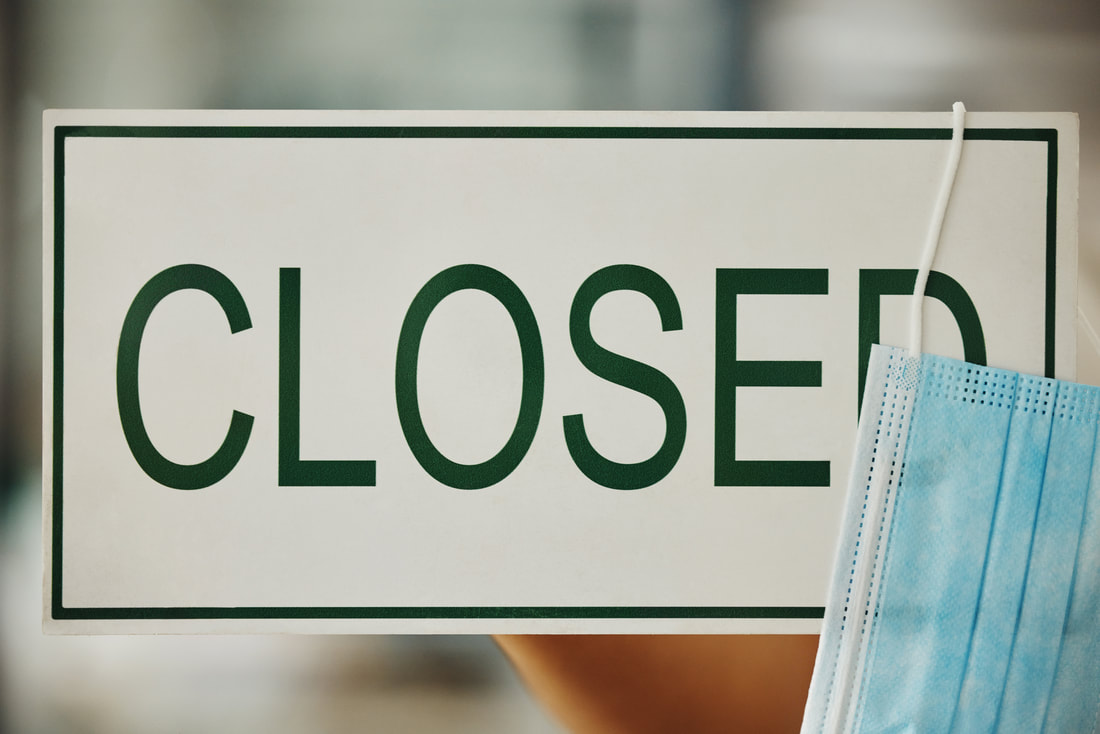
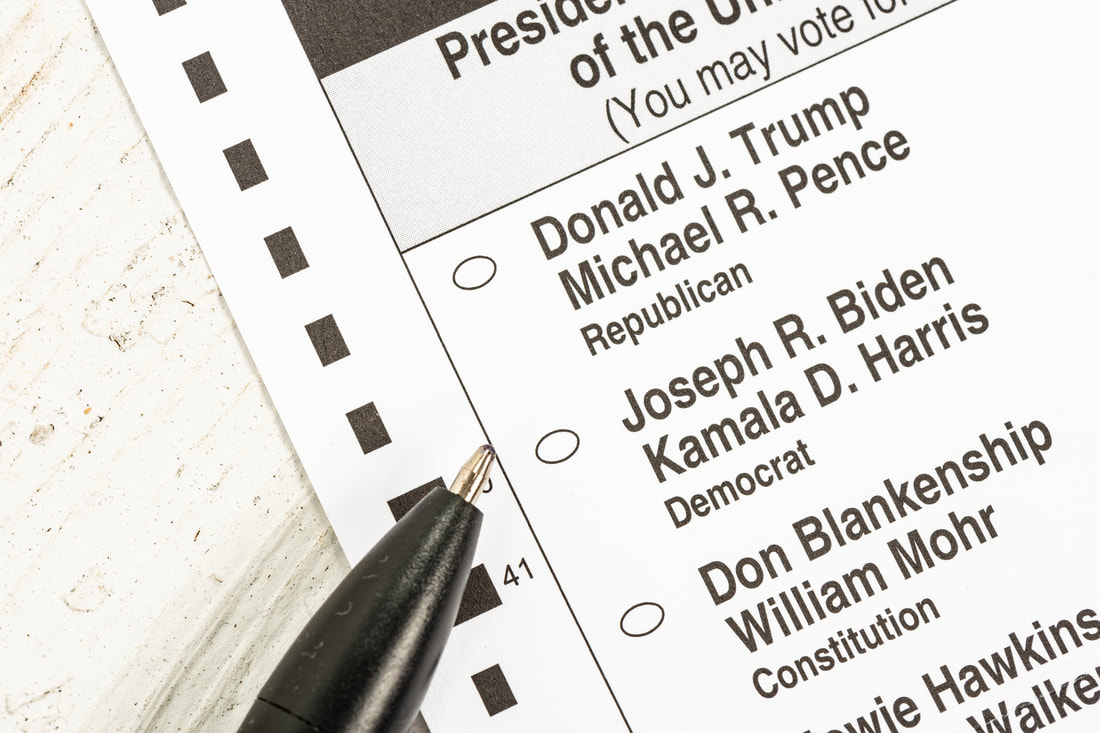

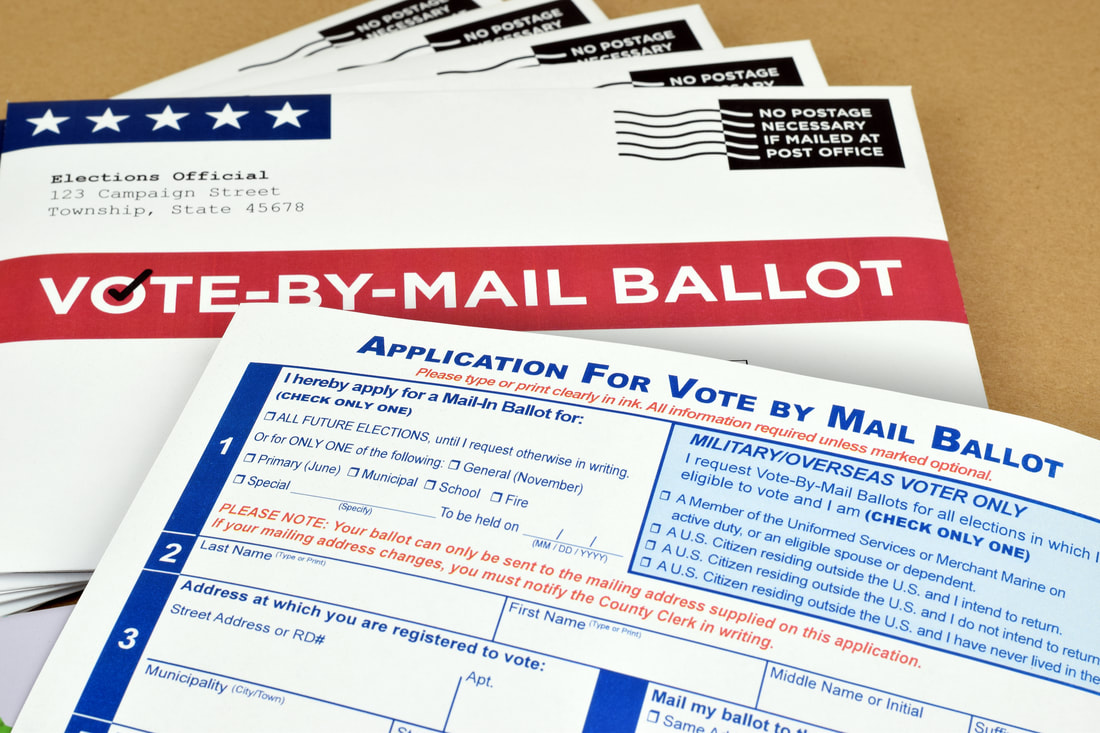
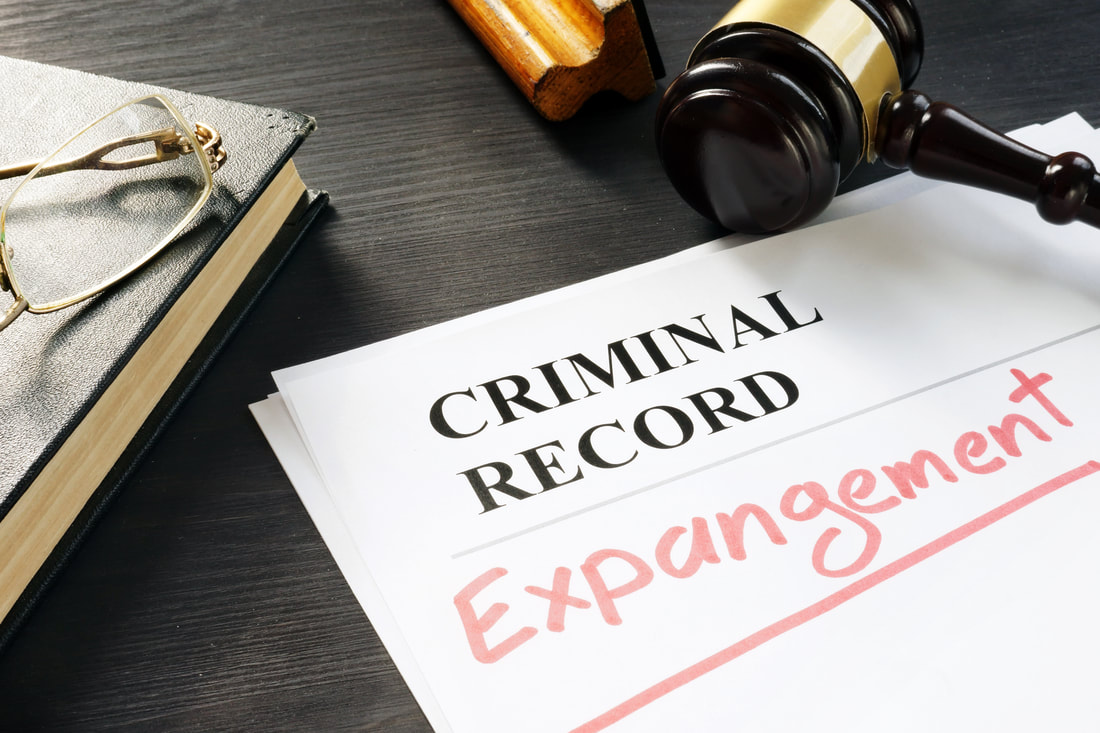

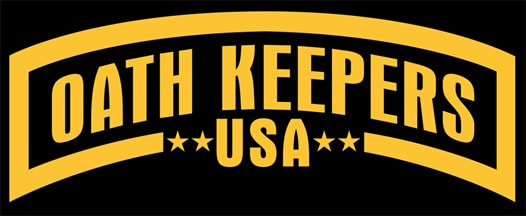



 RSS Feed
RSS Feed